Every business, no matter the industry or product, relies on one thing in order to be sustainable and profitable: leads.
While the definition of a lead is highly debatable between marketers and sales personnel, the simple definition is an individual or organization with an interest in what you have to offer.
Because leads are the lifeblood of any business, lead generation then becomes a crucial part of a business’ survival. But in the cutthroat world of digital marketing, people are bombarded with so many forms, landing pages, and other lead generation tactics that they have started to ignore them.
So what can you do as a marketer to improve your lead generation?
One simple solution: use Facebook lead ads.
What are Facebook lead ads?
Facebook is likely the biggest and most effective social media platforms for marketers to operate on. The reason is simple – Facebook has a massive base of 2.32 billion users.
That’s why Facebook decided to give marketers a better lead generation tool—one that doesn’t require users to fill out forms. They called it Facebook lead ads.

Source: WordStream
Facebook lead ads are native ads that appear in a user’s news feed. The beauty of these ads is that they allow users to access your offer without having to leave the app and jump to your landing page or website. In just a few simple taps, your prospect gets the information they need, and you get a much-coveted lead.
Facebook lead ads are native ads that appear in a user’s news feed. The beauty of these ads is that they allow users to access your offer without having to leave the app and jump to your landing page or website. In just a few simple taps, your prospect gets the information they need, and you get a much-coveted lead.
Advantages of Facebook lead ads
Are Facebook lead ads worth the time, effort, and money? Let’s look at some of the advantages of lead ads.
Reduces drop off rates
Drop off rates refer to the number of people who reach your website or landing page but don’t fulfill the action of intent.
Here’s a typical scenario with many online ads. A user sees your ad and is interested, so they click on the ad. They find themselves on your website, faced with a form to fill out. For many users, particularly those who were in the middle of something unrelated to your ad, a form is a barrier. So they’ll likely click out of your website and go back to what they were doing. That’s a drop-off.
Since Facebook lead ads keep users in the app, drop-off is considerably lowered.
Higher lead conversion rates
The beauty and simplicity of Facebook lead ads are that they eliminate the form. This means you end up enjoying increased conversion rates when it comes to generating leads.
The higher lead acquisition rates are also because lead ads are designed specifically for mobile (since most Facebook users access it on mobile devices). If you’ve ever tried filling out a form on a mobile device, you know sometimes it’s complicated. So eliminating form filling encourages more conversions.
Highly targeted lead acquisition
Facebook lead ads are a great way of getting the right lead, since the ads show a clear proposition and get in front of your chosen audience. Facebook’s algorithm also helps you find the right prospects by targeting users who have expressed interest in products similar to what you’re offering.
This results in high-quality leads that are more likely to convert into customers.
How to optimize your Facebook lead ads for maximum conversions
Before you rush off to create a Facebook ad, you have to know that not all ads are created equal. If you want Facebook ads that drive engagement, you will have to apply Facebook ad best practices. Here are a few tips to help you optimize your Facebook lead ads so that they generate vetted leads for your business.
1. Define your target audience.
The primary purpose of Facebook lead ads is to bring in the right kind of leads—ones that are ready to buy from you. To do this, you need to understand what the right lead looks like for you.
Create a buyer persona that you’ll use to set your audience type as you create your Facebook ad. Failure to understand your audience will attract uninterested users. Besides it leading to a flopped campaign, this is obviously also a waste of money.
2. Use eye-catching visuals.
Most people who use Facebook do so to see what’s happening in their friends’ and relatives’ lives. Because of this, Facebook is more of a visually driven platform. When creating your Facebook ads, you have to make sure to pay particular attention to the images you use.
Here’s what makes for great images:
- Relevant. Your image of choice must be relevant to the message in your ad. Otherwise, users won’t engage with it.
- High quality. Avoid using stock photos as much as possible. Instead, have some graphics made or get some high-quality photos of your own.
Here’s a great visual example of a lead ad by The Milwaukee Bucks:

Source: Facebook
The Bucks could easily have used an image of their team lineup, but they decided to use one which depicts the action-packed game they don’t want you to miss. No basketball fan would want to miss a game that promises so much excitement.
Images speak as loud as your copy, so make sure to your imagery aligns with your message.
3. Be clear about what subscribers are getting into.
When creating your lead ads, make sure to include an intro. Although this is optional, omitting it will make your ad less effective as you lose out on some real estate you can use to make it clear why your prospect should sign up for your offer.
4. Pace yourself.
As you’ve already seen, Facebook has 2.32 billion active monthly users. That’s a very sizeable pool. This is why when setting your bids, you need to set a budget that brings you the right volume of leads. Set a budget that is too high and you’ll be overwhelmed by the large number of (low-quality) leads you’ll get. Set a budget that’s too low and you’ll only get a trickle.
The best way to determine your budget is to experiment until you hit your sweet spot.
5. Create an irresistible offer.
Everyone loves a special offer. Improve your conversions by creating an offer tailor-made for your target audience. Two hallmarks of a compelling offer:
- Relevant. An irresistible offer is something that your ideal customer needs. If they don’t, they have no reason to sign up.
- Urgent. One way to make your offer irresistible is to make it limited. This could be a limited time or while product lasts. Because people fear missing out, they’ll act fast to get the offer.
Be sure to make your offer something only your target audience will be interested in, and you’ll see better conversion rates.
6. Optimize your CTA.
Your call-to-action is an integral piece of your ad. It’s the last piece of the puzzle that encourages people to click on your ad. Make sure your CTA is clearly visible and tells people exactly what they should do. As much as possible, use language that relates your offer to the CTA.
7. Keep your forms as simple and short as possible.
When it comes to form design, make sure that your form is short, simple, and easy to fill. Long forms result in lower conversions, and high drop off rates as your prospects lose interest. It’s also easy for them to be distracted while reading and filling the form.
As for your questions, if you decide to use some, avoid open-ended ones a much as possible, as the main advantage of lead forms will be lost (not having to fill out too much information).
The best form designs feature as few fields as possible, and ones that are pre-populated.
Wrap up
Facebook lead ads are a phenomenal way to get people to sign up for your service, newsletter, or anything else you may be offering. Not only are they user-friendly for your prospects, but they’re also cost-effective for marketers.
If you haven’t been using Facebook lead generation in your marketing, you’ve been missing out. You can, however, make up for lost time by jumping on the bandwagon and ensuring that you optimize your ads for maximum conversions. Before you run off, check out our article on how to use email and social media marketing together to increase your results.





